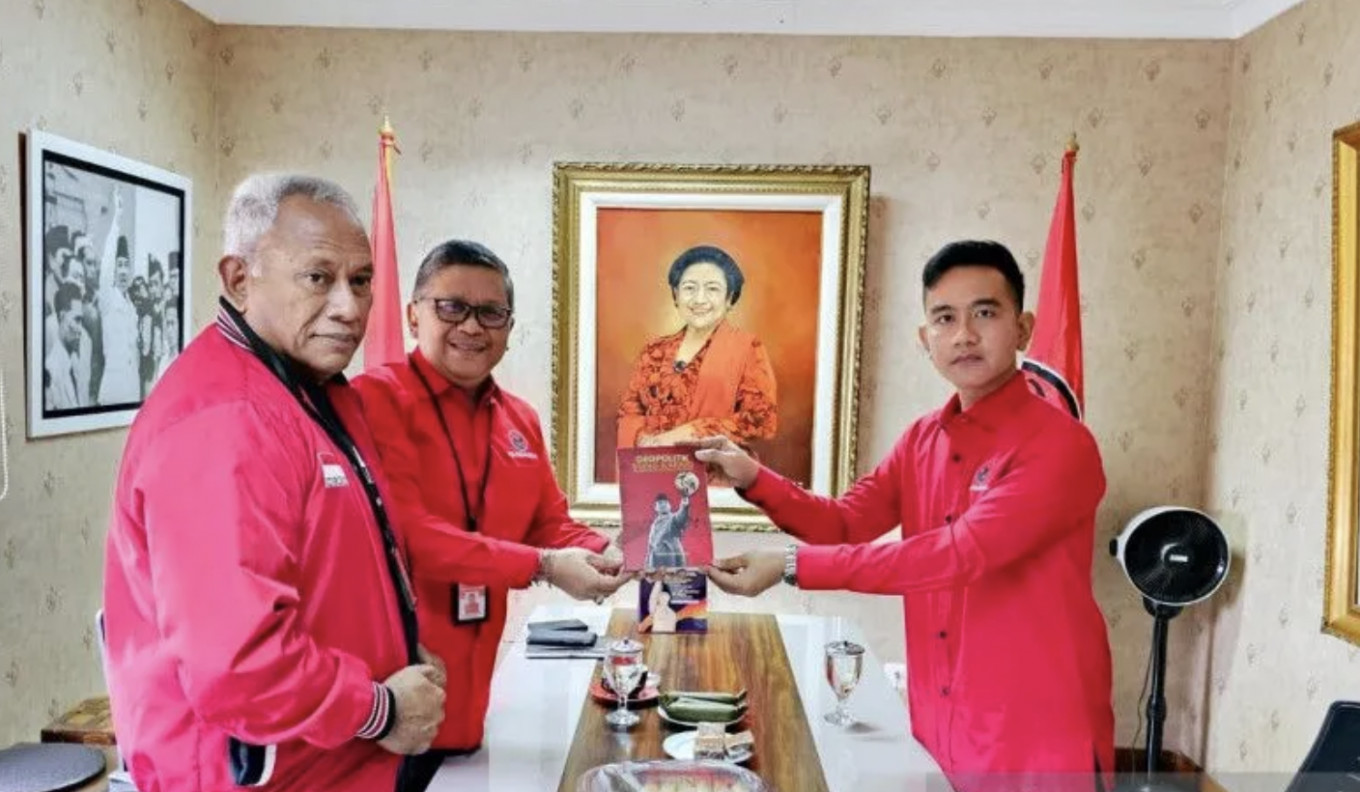Popular Reads
Top Results
Can't find what you're looking for?
View all search resultsPopular Reads
Top Results
Can't find what you're looking for?
View all search resultsGhost of past administration
As a new president who was still working to consolidate his power, Prabowo certainly did not want to alienate the PDI-P, currently the biggest political party in the House of Representatives.
Change text size
Gift Premium Articles
to Anyone
W
hen early in his administration around three months ago President Prabowo Subianto made a pledge to crack down on corruption, the decision to name secretary-general of the Indonesian Democratic Party of Struggle (PDI-P) Hasto Kristiyanto suspect in a graft case was most likely not at the top of his priority list.
As a new president who was still working to consolidate his power, Prabowo certainly did not want to alienate the PDI-P, currently the biggest political party in the House of Representatives.
If anything, the arrest of Hasto could complicate his efforts to build a good and stable relationship with the party’s chairperson Megawati Soekarnoputri, a plan that has not yet been realized despite several attempts.
Incurring the wrath of Megawati only three months after the President took office is a risk not worth taking.
From the anti-graft fight perspective, the decision to name Hasto a graft suspect in a bribery case, which revolves around an illicit cash transfer of a little over Rp 1 billion (US$66,000) should also be low in the priority list of the Corruption Eradication Commission (KPK), considering that the anti-graft body still has to go after some bigger fish in other major corruption cases.
So how do we make sense of the KPK’s move against Hasto on Christmas Eve?
The fact that Hasto was named suspect in a corruption case only days after the PDI-P banished former president Joko “Jokowi” Widodo, his son Vice President Gibran Rakabuming Raka and his son-in-law Bobby Nasution from the party, is a strong indication that the former first family still has a score to settle.
For obvious reasons. In the lead-up to this year’s presidential election Hasto led a staunchly anti-Jokowi faction within the PDI-P, a group of politicians who have been very critical of the former president’s actions, which they deem anti-democratic, and which range from wanting to serve another term in office, to nominating his oldest son as vice presidential candidate.
In May 2023, Hasto chaired a session hastily arranged to reprimand Gibran, after the then mayor of Surakarta, Central Java, held a meeting with Prabowo, at that time the defense minister, long before the party nominated its own presidential candidate.
In more ways than one, the decision to name Hasto a suspect is similar to the arrest of former trade minister Tom Lembong, who has been implicated in a graft case surrounding the importation of sugar.
With the Attorney General’s Office (AGO) failing to give details as to how Tom’s decision to import sugar in 2015 caused any state losses, many are convinced that he is simply being punished for being too critical of some of Jokowi’s economic policies.
It does not make much difference now that Hasto’s corruption case is being handled by the KPK instead of the AGO, a law enforcement agency serving under the executive branch of the government.
Since 2019, following the amendment of the KPK Law, the antigraft agency has also been placed under the stewardship of the President and its reputation has been on the downward spiral ever since (the agency’s last chairman Firli Bahuri is now a graft suspect, by the way).
There is nothing to indicate that the current batch of KPK commissioners, whose nomination and inauguration was one of Jokowi’s final acts in office, would act differently and their last move to name Hasto a suspect in a minor bribery case serves only to confirm the public skepticism.
In the first decade after its formation in the early 2000s, the KPK was a much-feared agency whose anti-graft investigations could send a shiver down the spine of government officials and politicians.
Today, the anti-graft body is simply a tool for political witch hunts.











